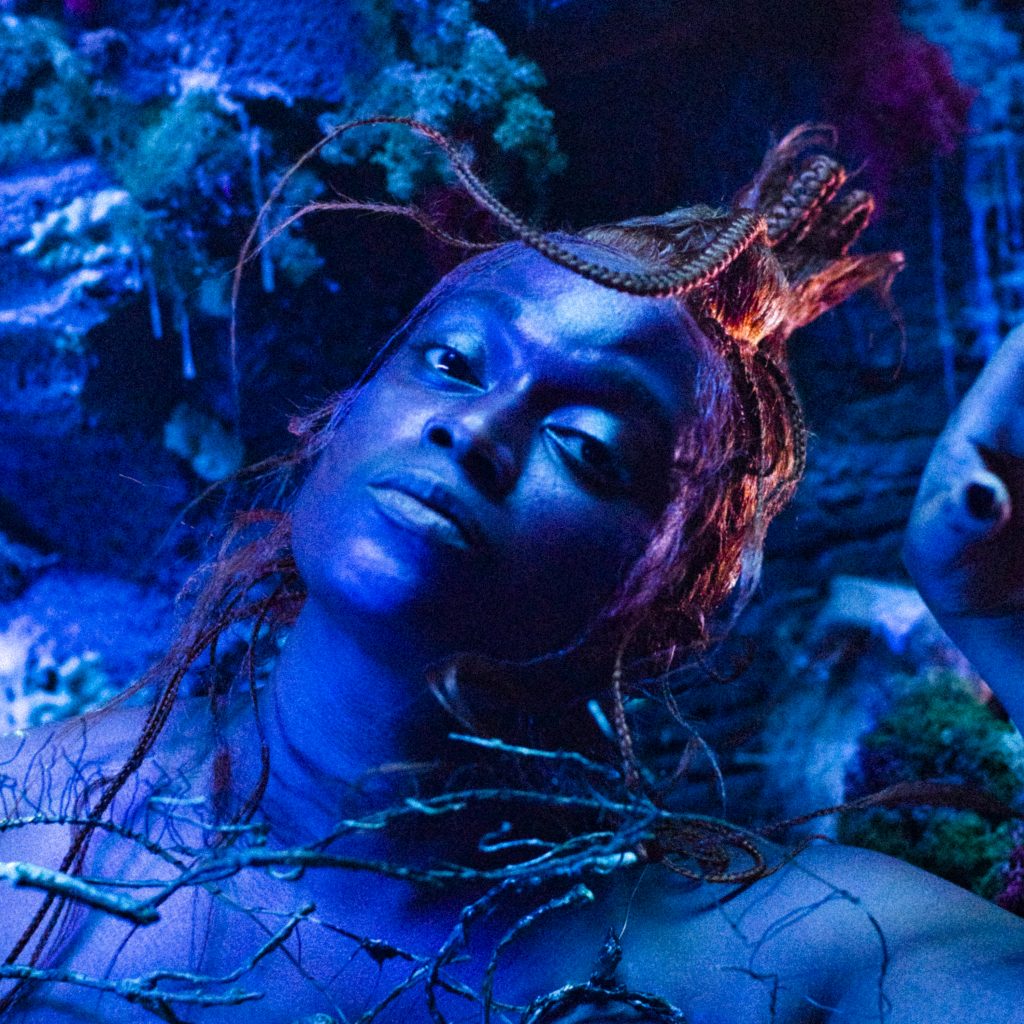Lotic
Water (Houndstooth)
Contact Patrick Tilley about Lotic
J’Kerian Morgan, the artist known as Lotic, says of her second album Water: “This is the record I always wanted to write. This feels like my arrival as an artist.”
To arrive at Water meant to become like water. Lotic (meaning, “Of, relating to, or living in flowing water”) dedicated two years to a deep, intentional process of surrendering to softness, welcoming impermanence, embracing intimate relationships with her environment and self. Yet, to embrace vulnerability is to welcome its totality. Water heals, and it harms. It can sharpen, scald or silently consume. Water is a conduit for human corruption, such as the wrenching cruelty of forced Middle Passage crossings, yet water remains a site of ritual and absolution, a source of constant renewal.
Through Water, Lotic acknowledges, heals and exalts relationships that are complex and nonlinear. With nine distinct compositions she gently collapses concepts of time and selfhood, meeting the eyes of the ancestral, the shadowed, the total and part selves with a steady loving gaze, locked in an infinite reflection.
Water is the complete embodiment of Lotic’s dedicated praxis; one which unpicks a certain narrative about corrosive angst and outlier musicality. Within Water, Lotic’s compositions curve around the sub bass of an 808, with vibrations and hums superseding clarity and separation. Drums are softened to a powdery warmth, and each chapter unfolds as a symphonic sound poem. Heartful depictions of love relationships to others and the self, to ancestry and identity, are marked by stunning new expressions of ecstatic voices.
“Wet” is a feat of non-lyrical vocal expression, luxuriating in its own operatic romanticism. “Emergency” shifts gears with quickened drums, a pulsing rhythm and breathless insatiability, reinforced by the upper-register delivery of the plea, “Sound the sirens / My body’s writhing / I need to see you / Feel you, taste you, reel you in.” “Come Unto Me” is the synchronous telling of a cherished partnership and a lament for its loss through time. It relishes in connectedness with the lyrics, “Seeing you fully hear you entirely / Need you to know i / Love you truly, deeply,” while foreshadowing the inevitable need to soon turn those sentiments towards herself. Its bittersweetness reflects in the unlikely union of sludgy, bodeful pads and tones and delicate, celestial chimes.
“Changes” is a spoken testimony to unequivocal Black queerness, and features the voice of Julius Errol Flynn. “Always You” is a slow, deliberate mantra, laid meditatively over an accelerated double-time tempo, professing, over and over, to forever choose the object of its desire. “Apart” addresses the sweet agony of separation, with skittering electronic pulses and plucking of harp strings gently guide Lotic’s angelic voice further upwards towards a heavenly ascent.
The album’s third begins with sown seeds of discord in “A Plea.” Thunderous single notes hum like drones, falling away into a racing, skipping heartbeat, while demanding with a hot whisper to know “Do you even see me? Do you even care? Do you even love me? Of this I’m unaware.” “Oblivious” emerges as a solo voice under a spotlight, but the scene soon reveals an expanse of unsteady, inhospitable terrain. A devastating dressing-down ensues with Lotic’s voice hovering with clarity and shifting glimpses of razor sharpness, as she addresses the protagonist with her scars and righteous indignation. The haunting, swooping, intuitive harmonies of “Diamond” unites and concludes the context and subtext of Water, with a fitting final metaphor and a soaring musical peak. Here the beauty and follies of the human condition, the intoxicating and excruciating nature of love, and the crushing realities of a life lived can indeed forge something even more exquisitely, artfully, uniquely beautiful than expected.

